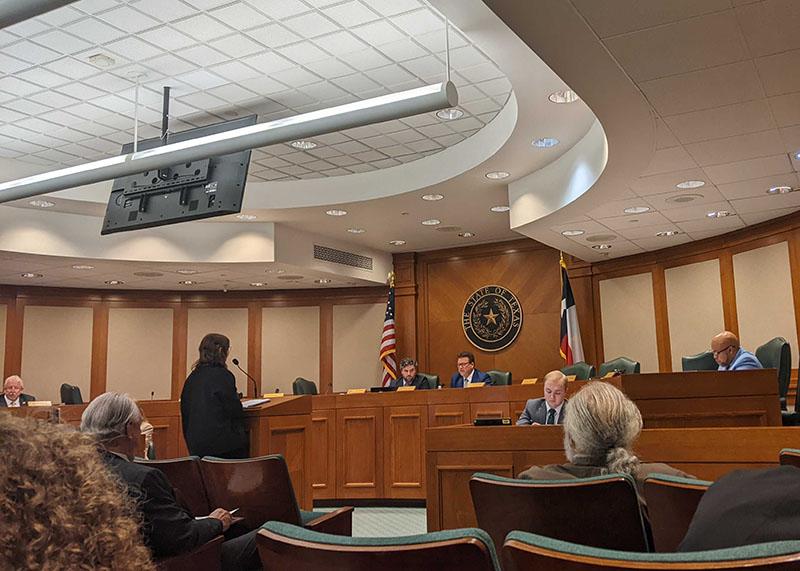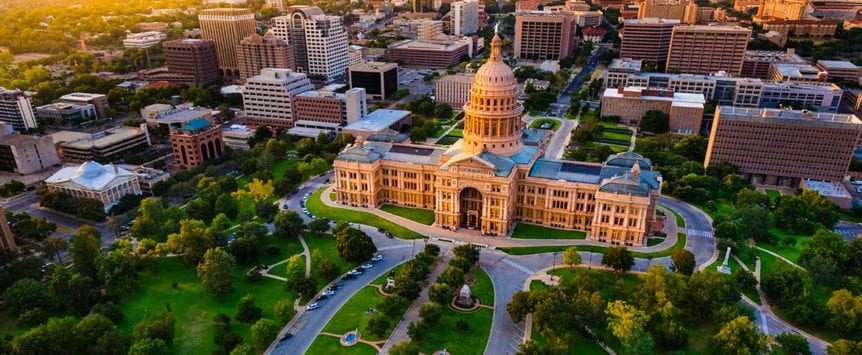Updated March 21, 2024.
Governor Greg Abbott signed House Bill 1526 into law on June 10, 2023. Going into effect on January 1, 2024, this new law dictates how local parkland dedication (PLD) ordinances can be used in Texas cities with populations over 800,000 (Austin, Houston, San Antonio, Fort Worth and Dallas). This bill has effectively gutted future Parkland Dedication.
What happened after HB1526 was signed into law?
On Nov. 9th, 2023, Austin City Council voted to adopt the geographic boundaries and motioned to repeal the PLD ordinance, replacing it with an ordinance in compliance with the new law. The new ordinance was approved by the Parks Board and Environmental Commission, both noting that the city had to adopt the new ordinance to comply with the state law but that it will devastate the level of parks service.
On Dec. 14, 2023, city Council adopted an updated parkland dedication fee schedule as required by HB 1526. The bill included formulas that set the fees and the City of Austin has no discretion to change or alter these formulas or the calculated fees. You can read more about the detailed fees on the city’s website.
Now any multifamily, hotel/motel site plan and subdivision applications will be filed under the new fee schedule. The new law makes the fees due at the certificate of occupancy, creating a lag between when the fee is set and when the City would see any revenue. This new system creates a multi-year lag between fee assessment and fee payment – effectively freezing these funds for ten years instead of allowing them to increase along with the value of the land.
This means that, in the future, there will be a disconnect between the fees the city receives for permits approved years ago, and the value of the potential parkland the city would purchase with those fees.
We’re anticipating a shortfall of 100+ acres of parkland from what was previously forecasted over the next six years.
Fees are not the whole story: land acquisition and accepting parkland from developers has also been challenged by the law.
Previously, land dedicated as parkland was only capped in the urban core, with a cap of 15% of the overall land area of the development. Under the new rules, parkland dedication will now be capped at 10% of the development site throughout the entire city. This means that even when a development dedicates land to the city, the total land dedicated can only be equal to 10% of the site. Additionally, the value of the dedicated land must be compared to the value of the alternative parkland dedication fee. If the value of the land exceeds that of the fee, the City will be required to pay the landowner the difference in value.
In the Central Business District, the value of the land is to be divided by 40, and by 4 in the Urban area. This effectively slashes what the city can require in these areas, including limiting onsite dedication requirements. In practice, the City will use these calculations for all potential land dedication cases, and rarely require land dedication in favor of collecting a fee. This is a concern because where land values are highest (in the Central Business District and Urban areas) developers will very rarely be required to dedicate land as part of their development and instead pay the parkland dedication fees – the revenues of which won’t actually be high enough for the city to purchase land in the areas needed for parks.
The disconnect between fees collected and rising land values, coupled with the loss of agility in acquiring parkland dedication in the urban core makes it clear that this law is harmful to Austin’s park system. Within 10+ years, when much of the Central Business District and Urban Core are fully developed, we can expect less parkland within easy access of a much denser city.
What is Parkland Dedication?
Parkland Dedication (PLD) is a tool used by cities to help provide the level of services needed to maintain parks as populations grow and new developments increase demand on the parks system. Usually collected as either a fee or dedicated land allowance from new developments, this ensures that the infrastructure of the park system is protected from the negative impacts of new growth and provides healthy, safe spaces through parks for current and future generations.
“Parkland Dedication is an important resource for reducing taxes, providing political centrality and contributing to how fast-growing cities invest in parks and green spaces.” – Dr. John Crompton, Texas A&M University (2022)
What’s happening to Parkland Dedication in Texas?
The new law will reduce the effectiveness of Parkland Dedication by reducing the land requirements. Currently, Austin’s PLD Ordinance stipulates that for every 1,000 new residents in a new development, 9.4 acres of parkland must be dedicated. The new law will reduce the requirement to 0.73 acres in the high-density urban core.

How has Parkland Dedication benefitted Austin?
In Austin, new parks are primarily funded two ways: through bonds and Parkland Dedication. In fact, between 2016 and 2021, the City of Austin collected over $38 million in Parkland Dedication fees – funds used to acquire new parkland and support new park infrastructure.
The Austin Parks and Recreation Department estimates that the new law will cause at least a 100-acre deficit in the park system by 2030.
Since 2017, Austin has acquired almost 70 acres of new parkland (valued at over $24 million) through the use of Parkland Dedication. The following projects and acquisitions were either fully or partially funded through Parkland Dedication in Austin in 2020:
How does the new law affect park funding in Austin?
The changes to parkland dedication put in place by this new law will have a critical impact on Austin’s parks and green space. Without Parkland Dedication funds, the City of Austin will have to find other avenues of funding to secure the financial means to maintain and improve our nearly 400 parks.
Additionally, lower fees and smaller parkland requirements from developers will put the increased financial burden of maintaining our park system on taxpayers, as the park system will rely more heavily on bonds and increased taxes to fill the funding gap. The law also requires that cities pay developers for any land dedicated over a set fee cap. Had this policy been implemented in 2021-2022, the taxpayers of Austin would have owed developers over $65.2 million to achieve the same level of growth in our park system – a total of 54 acres of new parkland.
Austin Parks Foundation remains committed to the fight for parks funding in Austin.
During the 88th regular Texas Legislative session, Austin Parks Foundation worked with local governments around Texas and the City of Austin Parks and Recreation Department to fight this devastating bill. Unfortunately, despite testifying in front of the House and Senate committees, organizing advocates to speak on behalf of Parkland Dedication and reaching out to developers and politicians to seek compromise, the bill was passed and signed into law.

APF Advocacy Manager, Kayla Reese, testifying on behalf of Parkland Dedication at the Capitol
APF is unwilling to accept a lower quality of care for our park system, and we will work with the City of Austin, local stakeholders and parks advocates (like you) to push citizen-passed bonds and research innovative ways to fund park projects.
Without Parkland Dedication, advocacy will become more important than ever, and we will need your support to ensure that our parks get the funding they deserve.
Interested in how you can help advocate for our parks? Subscribe to our advocacy newsletter to stay up-to-date on our efforts to secure crucial funding for Austin’s parks.

